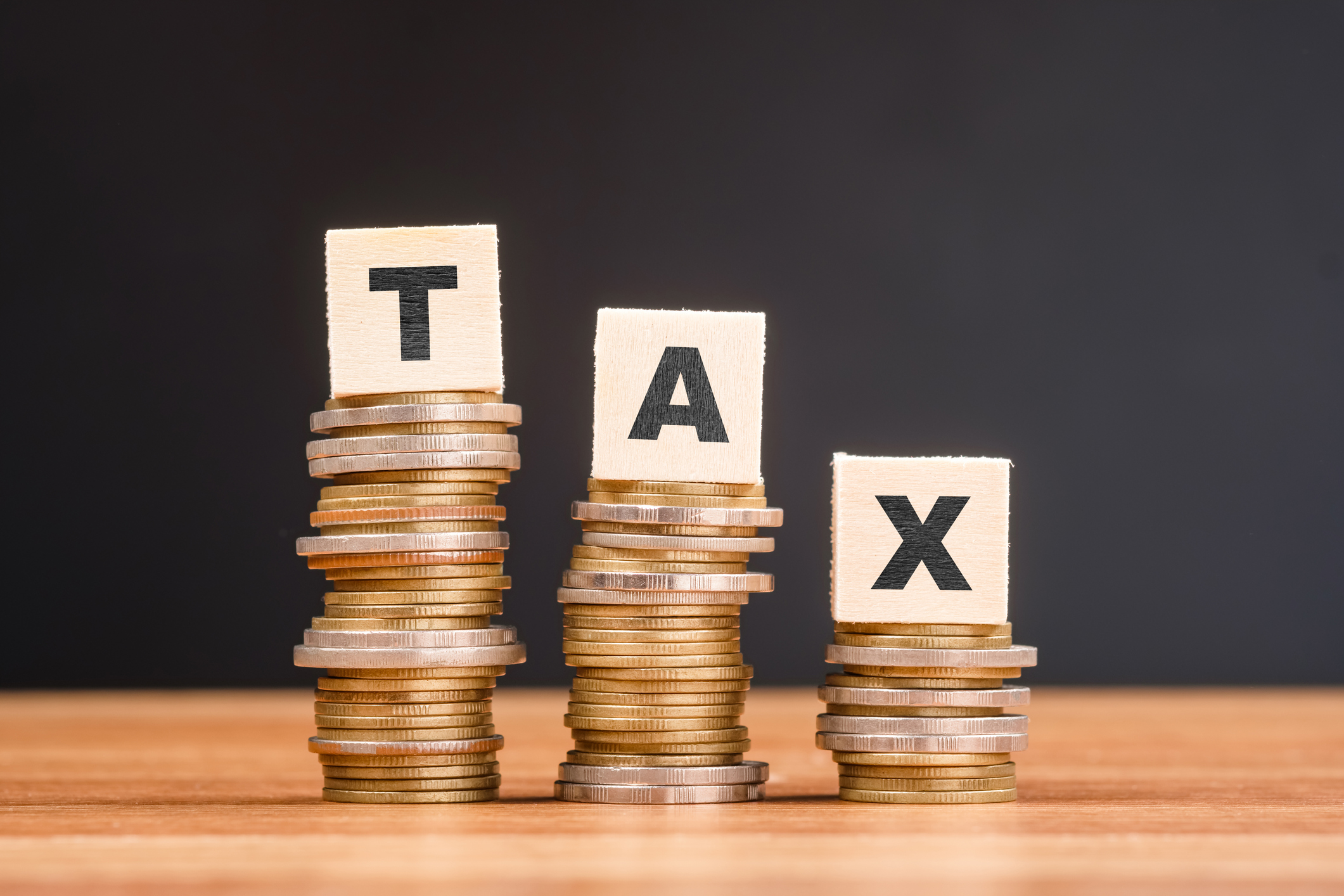Autumn Statement National Insurance cuts - what it means for you
Chancellor Jeremy Hunt has today announced that National Insurance will cut be by two percentage points from 12% to 10% from January 2024. Here’s what it means for your money


Get the latest financial news, insights and expert analysis from our award-winning MoneyWeek team, to help you understand what really matters when it comes to your finances.
You are now subscribed
Your newsletter sign-up was successful
Want to add more newsletters?
Around 27 million will benefit from the National Insurance cut, announced in today’s Autumn Statement, which will it drop by 2 percentage points from 12% to 10% from 6 January 2024.
Currently, National Insurance is charged at 12% for your earnings between £12,571 and £50,271, and 2% on anything above that.
But the 12% rate will fall by 2 percentage points to 10% from next year; the move could save someone earning £30,000 a year around £350. Anyone earning more than £50,270 will save the maximum of £754 a year.
Try 6 free issues of MoneyWeek today
Get unparalleled financial insight, analysis and expert opinion you can profit from.

Sign up to Money Morning
Don't miss the latest investment and personal finances news, market analysis, plus money-saving tips with our free twice-daily newsletter
Don't miss the latest investment and personal finances news, market analysis, plus money-saving tips with our free twice-daily newsletter
In addition, Hunt has also scrapped class 2 National Insurance contributions and cut class 4 ones which will help 2 million self-employed workers.
Class 2 contributions are paid at a flat rate of £3.45 a week - the cut will save the average self-employed person £192 a year and they will not lose state benefit entitlements. Hunt has also cut class 4 contributions from 9% to 8% from April 2024. The combination of these cuts will save the average self-employed worker £350 a year.
This is now the third change in less than two years - it was hiked in April 2022, which was then reversed in November of the same year.
While the cuts are welcome and essentially gives workers a pay rise, does it give us respite from the fiscal drag? Plus, workers are still paying more in tax than if the government had not frozen thresholds.
The move will also have no impact on those above the state pension age as they do not pay National Insurance.
Sarah Coles, head of personal finance, Hargreaves Lansdown, said: “By keeping NI and income tax thresholds frozen, the Treasury has done nothing to protect us from the misery of fiscal drag, and means the lion’s share of the damage done to our finances from these tax hikes will still continue to be felt years down the line.”
How much will the National Insurance cut save you?
From January, this is the expected difference in your take home pay if you are employed.
How much employed changes to National Insurance save individuals
| Salary | Current total National Insurance cost | National Insurance cost from January 2024 | Difference |
|---|---|---|---|
| £20,000 | £891.60 | £743.00 | £148.60 |
| £30,000 | £2,091.60 | £1,743.00 | £348.60 |
| £40,000 | £3,291.60 | £2,743.00 | £548.60 |
| £50,000 | £4,491.60 | £3,743.00 | £748.60 |
| £60,000 | £4,718.60 | £3,964.60 | £754.00 |
| £70,000 | £4,918.60 | £4,164.60 | £754.00 |
| £80,000 | £5,118.60 | £4,364.60 | £754.00 |
| £90,000 | £5,318.60 | £4,564.60 | £754.00 |
| £100,000 | £5,518.60 | £4,764.60 | £754.00 |
Source: AJ Bell
How much will self-employed people save?
And if you are self employed, this is what the changes will mean to your income:
How much self-employed changes to National Insurance save individuals
| Salary | Current Class 2 and Class 4 cost | Class 2 and Class 4 cost from April | Cost saving |
|---|---|---|---|
| £20,000 | £848.10 | £594.40 | £253.70 |
| £30,000 | £1,748.10 | £1,394.40 | £353.70 |
| £40,000 | £2,648.10 | £2,194.40 | £453.70 |
| £50,000 | £3,548.10 | £2,994.40 | £553.70 |
| £60,000 | £3,767.00 | £3,210.60 | £556.40 |
| £70,000 | £3,967.00 | £3,410.60 | £556.40 |
| £80,000 | £4,167.00 | £3,610.60 | £556.40 |
| £90,000 | £4,367.00 | £3,810.60 | £556.40 |
| £100,000 | £4,567.00 | £4,010.60 | £556.40 |
Source: AJ Bell
What is National Insurance and why do I pay it?
National Insurance payments are paid by both employees and employers - it is the second biggest source of money for the government. A fixed percentage of your income is deducted from your wages, and how much you pay dictates your eligibility for certain state benefits, like the state pension for example.
The key National Insurance rates and Thresholds from 6 April 2024
| NICs Primary Threshold / Lower Profits Limit | £12,570 (annual) |
|---|---|
| Class 1 NICs Main Rate (from 6 January 2024) | 10% |
| Class 4 NICs Main Rate | 8% |
| Lower Earnings Limit | £6,396 (annual) |
| Small Profits Threshold | £6,725 (annual) |
| Class 2 Rate (for those paying voluntarily) | £3.45 (per week) |
| Class 3 Rate | £17.45 (per week) |
Source: Treasury
Get the latest financial news, insights and expert analysis from our award-winning MoneyWeek team, to help you understand what really matters when it comes to your finances.
Kalpana is an award-winning journalist with extensive experience in financial journalism. She is also the author of Invest Now: The Simple Guide to Boosting Your Finances (Heligo) and children's money book Get to Know Money (DK Books).
Her work includes writing for a number of media outlets, from national papers, magazines to books.
She has written for national papers and well-known women’s lifestyle and luxury titles. She was finance editor for Cosmopolitan, Good Housekeeping, Red and Prima.
She started her career at the Financial Times group, covering pensions and investments.
As a money expert, Kalpana is a regular guest on TV and radio – appearances include BBC One’s Morning Live, ITV’s Eat Well, Save Well, Sky News and more. She was also the resident money expert for the BBC Money 101 podcast .
Kalpana writes a monthly money column for Ideal Home and a weekly one for Woman magazine, alongside a monthly 'Ask Kalpana' column for Woman magazine.
Kalpana also often speaks at events. She is passionate about helping people be better with their money; her particular passion is to educate more people about getting started with investing the right way and promoting financial education.
-
 Financial education: how to teach children about money
Financial education: how to teach children about moneyFinancial education was added to the national curriculum more than a decade ago, but it doesn’t seem to have done much good. It’s time to take back control
-
 Investing in Taiwan: profit from the rise of Asia’s Silicon Valley
Investing in Taiwan: profit from the rise of Asia’s Silicon ValleyTaiwan has become a technology manufacturing powerhouse. Smart investors should buy in now, says Matthew Partridge
